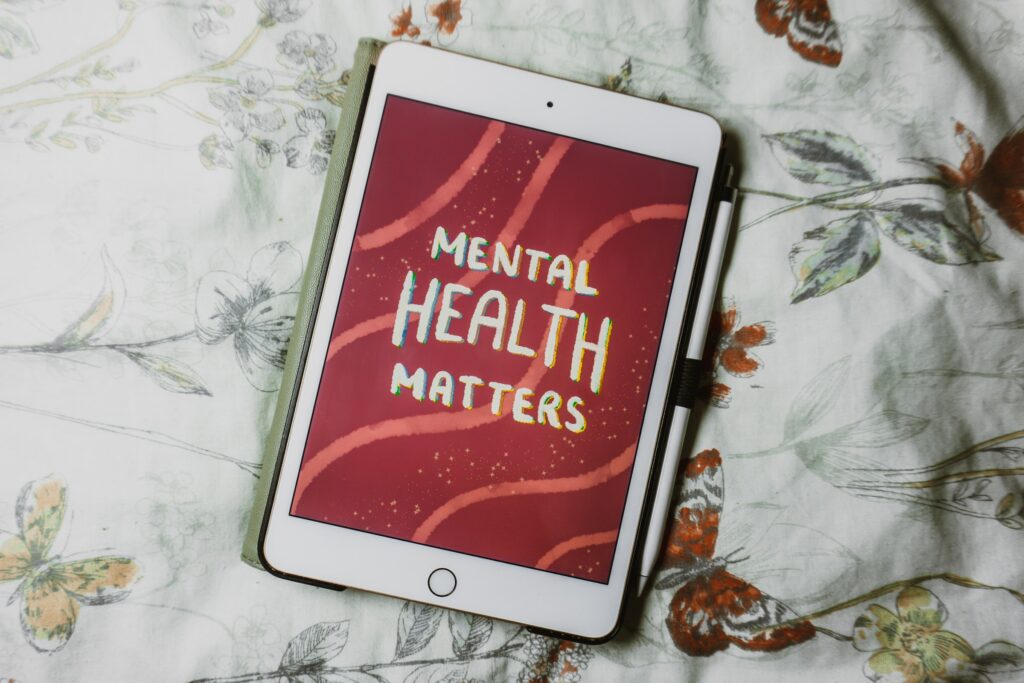Fortunately, there are some things you can do to help you achieve healthy mental well-being. These tips include engaging in physical activity, getting plenty of sleep, and talking to a therapist. They also have coping skills, spend time in nature, and get good nutrition.
Physical activity
Regular, moderate-intensity activity is one of the best ways to improve mental health. It increases blood circulation, decreases anxiety, and relieves depression and stress. It also improves memory, cognition, and emotional well-being. In addition, getting a regular exercise routine helps people stay fit, preventing or alleviating physical conditions such as hypertension, diabetes, and heart disease.
However, many studies have not focused on the relationship between physical activity and mental health. Researchers are beginning to understand exercise’s profound effects on the brain, especially in regions most affected by depression and schizophrenia.
The World Health Organization (WHO) recently published the Global Action Plan on Physical Activity (GAPA) to encourage countries to provide more opportunities for physical activity. It calls for actions at the global, regional, and local levels. It also outlines 20 specific policy recommendations.
Connecting with others
Getting social can be a great way to boost your mood and improve your overall health. Connecting with others can help to decrease depression, increase empathy, and build a sense of community. However, making new friends is often an unnerving experience.
If you’re unsure how to start building a network of supportive relationships, joining a support group can be an excellent first step. These groups are designed to help you overcome mental illness and develop skills to cope with the day-to-day challenges of living with a mental health condition.
For the tech-savvy among us, digital tools are available to facilitate connecting with others. These include online forums, email services, and social networks.
Good nutrition
Having an Elevated Counseling plan can help you improve your mental health. Not only does it help you feel better, but it can also improve your memory, sleep patterns, and reduce your stress levels. It will even improve your self-esteem!
Various studies have shown that the right foods can make a difference in your mental health. In particular, research suggests that a diet rich in nutrients can prevent and treat depression.
The brain depends on various nutrients to perform multiple tasks, including forming new neurons. However, research has shown that certain nutrients may worsen symptoms of depression.
One study found that people with a low fruit and vegetable intake were likelier to have a low mood. Similarly, a high-fiber diet can benefit your mental health by helping your body absorb glucose more slowly. This is because fiber helps your body to avoid a sugar crash.
Coping skills
Having coping skills can help you get through difficult times. It can also lead to improved mental health. However, not all coping strategies are the same. Some may help you in the short term, while others may not. It’s up to you to figure out what works best for you.
Coping skills help tackle both short-term and long-term stressors. You can develop a toolbox of strategies that will allow you to cope with whatever life throws at you.
There are four basic categories of coping skills. These include problem-solving, emotional, relaxation, and proactive. The different coping methods can vary, but all of them are useful.
Spending time in nature
Getting out of the city and spending time in nature can significantly boost your mental health. It provides a break from our hectic world and gives a much-needed perspective.
Various studies have shown that outdoor time can reduce stress, anxiety, and depression. In addition, being outside increases feelings of self-esteem and lowers blood pressure. It also helps with memory and creativity.
Evidence shows that time spent in nature can improve short-term memory and attention. It also decreases cortisol, the body’s primary stress hormone. It can also boost the immune system.
One study found that people who spend time in the woods feel more relaxed and less anxious. Another found that a 20-minute break in nature relieved stress and anxiety.
Talk therapy
Getting talk therapy can be an effective way to reduce or eliminate symptoms associated with mental health issues. However, it is essential to note that there are several types of talking therapies, and the right one for you will depend on your needs.
The most common type of talking therapy involves speaking with a licensed mental health professional. A therapist will help you explore your thoughts, emotions, and behaviour patterns. The goal is to identify underlying issues and build new coping skills. The results can be long-lasting.
Another talking therapy involves working through specific traumatic events. In this case, the therapist will listen to your concerns and discuss the event with you in detail.
